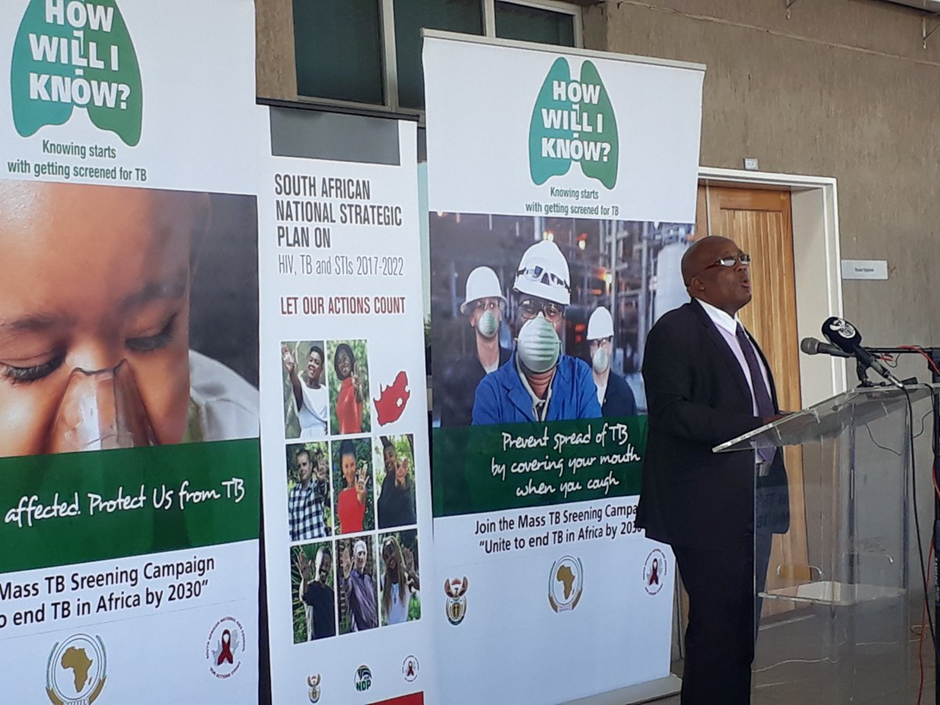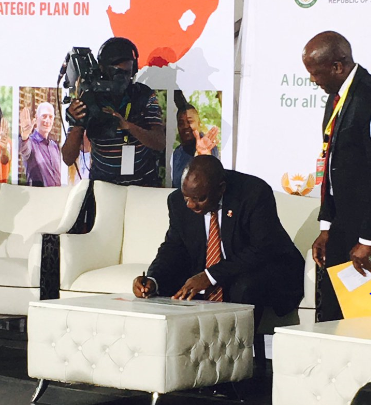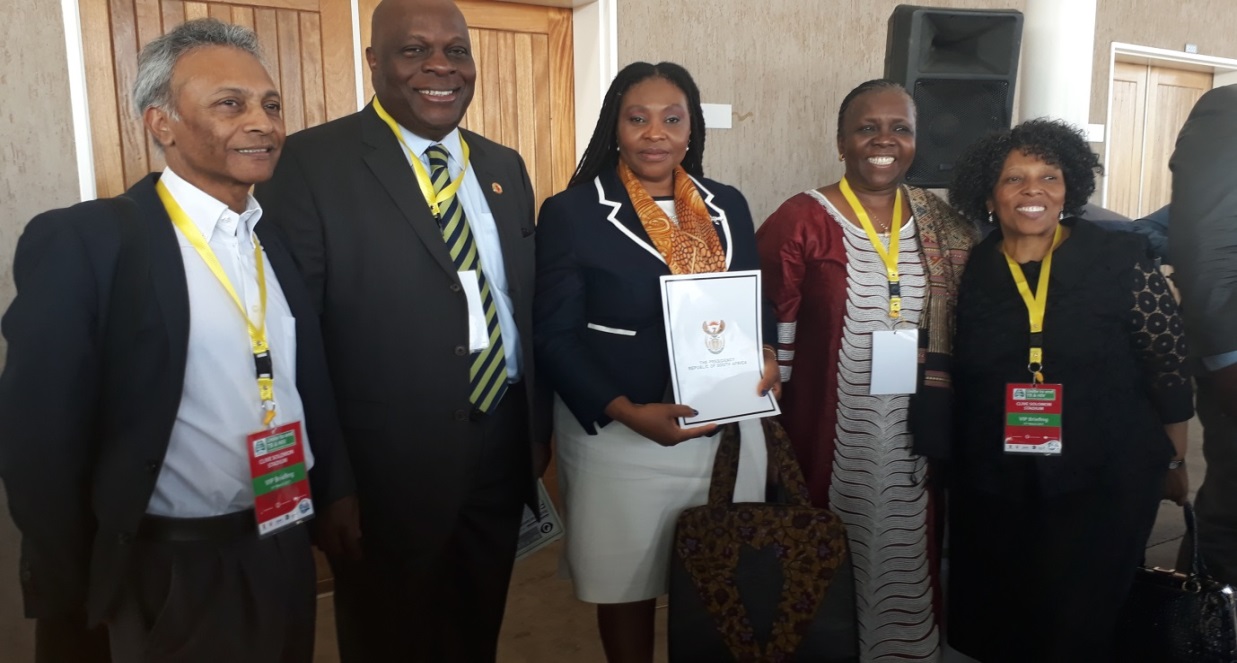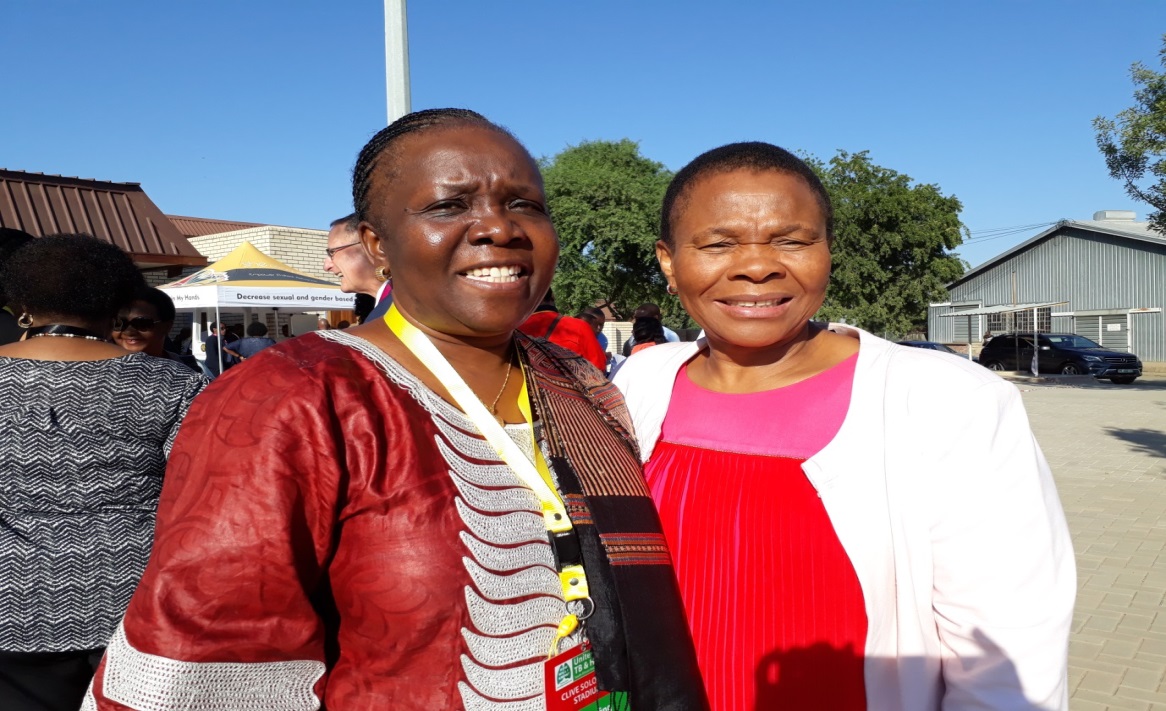On the 31 March 2017, a high level- launch of the new MDR-TB 9 month regimen and the National Strategic Plan on HIV, TB & STIs (NSP) was held at The Pelonomi Hospital in Bloemfontein. The MDR- TB launch was officiated by Dr Aaron Motsoaledi who emphasized that to end tuberculosis as a Public Health threat there is need for high levels of commitment and engagement.
Being the Co-Chair of the Global TB Group, he indicated that he has been advocating at the global level that governments commit more resources to TB as they have done for HIV and AIDS. Dr Motsoaledi mentioned he was excited that there were plans to hold the first ever World Health Council to discuss TB at the United Nations General Assembly in 2018. Some of the key highlights in his statement included acknowledging that with nearly one in every 100 people developing active TB, it is regarded as the leading cause of death in South Africa; however, he was happy to announce that 70% of MDR-TB patients would qualify for the new 9 month regimen. Of importance, he noted that with the introduction of the GeneXpert test in all districts, the improved technology, which diagnoses TB by detecting the presence of TB bacteria, as well as testing for resistance would revolutionise the TB response in the country. Furthermore South Africa would save R102 million in the next 2 years because of the new treatment.


The official launch was preceded by a panel discussion of representative from the National Government (Minister of Health), Civil Society; Labour movement the Congress of South African Trade Unions (COSATU); the United Nations family and Development Partners (US Embassy). In introducing the panel discussion, Dr Nono Simelela, Special Advisor to the Deputy President of South Africa, noted key highlights from the NSP. She was delighted to note that they would be working with schools, as the Department of Basic Education policy on the prevention and management of learner pregnancy is now in place to promote Sexual Reproductive Health in the school setting.
Key highlights from the panel discussion included the Minister of Health claiming that globally girls in the age group 15- 24 are experiencing 5000 new infection weekly and almost 50% of these occur in South Africa. The NSP would, therefore, pay more attention to girls in this group and would focus on the 27 most affected districts in the country. Secondly, he retorted that it is important for all leaders at all levels to take responsibility, that leadership and accountability are key to the success of the plan.

Providing a message of support from the UN family, UNAIDS Executive Director, made a commitment to mobilize technical assistance to support the implementation of the NSP and commended the government for being able to finance up to 80% of the treatment programme. He emphasized the need to continue exploring innovative funding opportunities and urged the UN and other stakeholders to continue advocating for key populations.
COSATU committed to “mobilising the labour movement to support the implementation of the NSP and advocated for the establishment of coordination unit at the workplace”.
Private sector representative made a commitment “to collaborate with other stakeholders in support of the implementation of the NSP Committed to mobilize private sector particularly in the 27 high burden districts”.
SANAC Civil Society representative noted “the need to recognize that the NSP is about people and involve them in its implementation”.

From left to right: Dr Esther Muia, UNFPA Representative with the Minister of Women in the Presidency, Ms. Susan Shabangu.
In response to the panel discussion, Lebo Ramafoko, Soul City Institute CEO and one of the Youth Leaders of the She Conquers campaign were given opportunity to respond. Lebo advocated for the protection of the girl child and need to ensure that resources are well coordinated so that the voices of the most vulnerable are heard. The youth leader from the She Conquers campaign emphasized the need for accountability and she advocated for the need to scale up Pre-Exposure Prophylaxis (PrEP), particularly for young people through the provision of youth friendly services.
In his official statement, the Deputy President spoke of the need for more investment targeting the most vulnerable. He pledged that government would continue to target the adolescent girls through the She Conquers campaign, while addressing patriarchy, gender- based violence and drug abuse which he noted as major drivers of the epidemic. In his concluding remarks, he reiterated that the NSP is about the life of South Africans and therefore the need for it to be supported by all.

